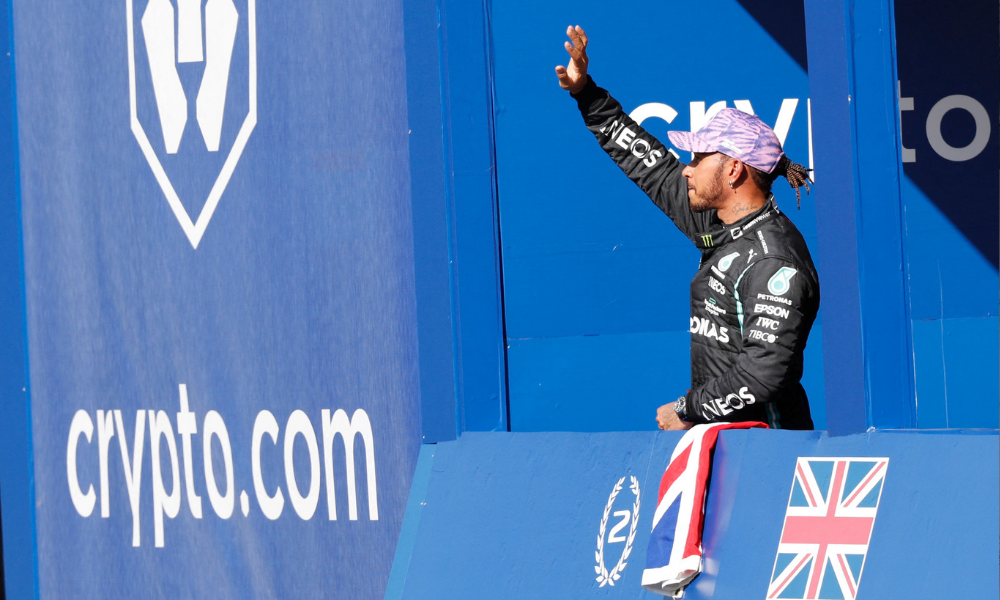Cryptocurrency is the new sponsorship frontier.
Giles Morgan explains why the recent flood of cryptocurrency sponsorship offers a cautionary tale to rights holders about who they take their money from in the latest installment of his monthly column for SportsPro, The Captain’s Broadside.
Those who regularly read The Captain’s Broadside or who listen to the international podcast Are You Not Entertained will know that Giles Morgan has been bullish over the last three years about the potential for sponsorship investment in sports.
Sponsorship: The Next Big Thing In Crypto
As a core pillar of traditional sport funding, sponsorship has traditionally been undervalued and misunderstood by both rights holders and brands. The true value of sponsorship, as a way to drive and measure direct sales, is only just beginning to be realized.
The majority of rights holders currently offer the corporate market a fairly formulaic cake recipe based largely on a generous amount of spurious, inexact, and misleading television data. In addition to the spice, lace, and drizzle of hyperbole, the cake was also decorated with a topping of corporate hospitality, and finally, with a magic dusting of VIP access and privilege.
And the recipe worked. For years. Until the dawn of corporate governance, accountability and regulation nearly a decade ago, the sponsorship model looked very fragile to the grey suits who lurked in the shadows of company hqs.
In the meantime, the dark forces of dystopia were gathering in their legions to douse the flames of corporate frivolity. A golden opportunity for smart-thinking rights holders existed with the tech knights emerging from Silicon Valley to save the day. Their digital wizardry allowed them to link sponsors directly with their most valuable asset: their owned and managed fanbase. Data on demographics, geography, socio-economics and the fans’ engagement with multiple digital touchpoints. In the sports industry, data-driven decisions are now the norm. Now, rights holders have something tangible to sell – and it is much more valuable.
The Changing World of Sports Sponsorship
Despite the fact that sponsorship investment may at last be changing, rights holders and sponsors should not forget the old school of thought that paved the way for this change. A good marketing plan will always combine science and art. While data provide science so urgently needed for proving the case for investment by business, the arts of sponsorship that have been developed over the past 50 years still hold great value. The key to doing that is to understand the emotional bond between fans and their passions.

Among all sponsorship canons (no pun intended), Morgan believes that the most fundamental one is the emotional connection that can be forged between two brands working together. The key to any good sponsorship relationship lies in this connection. Marriage that resonates and elevates both parties. And, most importantly, a partnership that engages and resonates with the crucial constituent: the fan.
Several cryptocurrency deals have been announced in the past month involving the world of sport. Cryptocurrencies are the darling of business pages right now.
It’s the ultimate disruptor – manna from heaven for futurologists – a growth sector that economists and financiers either adore or resent. It’s a polemic. And it’s just getting started.
These and other new brand sectors in an ever-growing tech world need to be carefully navigated by rights holders considering new partnership deals. Those sectors are coming to the table with suitcases of cash (or bitcoins, possibly) from their investors, offering funds that are easily enticed by an industry that is desperate for revenue.
Furthermore, these companies are still relatively new to the market and their business models are being tested and tweaked as well as having a low level of resonance with consumers and emotional attachment.
The fans are therefore either unsure, undecided, or at best sceptical about who the legitimate players and riders are in these emerging industries.
Creating strong sponsorships means building strong foundations. Partnerships that the fans can understand and support. Brands that the fans can trust. Authentic brands. Because inauthenticity in sports is what fans hate most.
A Crypto.com Arena deal recently announced in Los Angeles has been lauded by some and mocked by others since crypto is still in its infancy. Manchester City’s and FC Barcelona’s collapsed partnerships with 3Key Technologies and Ownix, respectively, has caused consumer uncertainty about this sector, which is detrimental to both clubs.

Many people complain that business dislikes uncertainty. Well, so do fans. These two deals serve as a reminder that who you do business with is of vital importance.
How To Do Sponsorship in Crypto?
In the sponsorship industry, the lesson is just how important due diligence actually is, as well as how important it is to perform a comprehensive and tailored risk assessment when considering sponsorship partnerships.
The wisest rights holders understand that they are most valuable to their fans when they relate to them on an emotional and authentic level.
Every decision they make commercially must be made with the fan in mind, which means being careful and selective about the partners they align with.
The sports industry is rife with examples of sponsorships that have compromised the image of the rights holder. Some agreements are unwieldy.
HSBC Enjoy Jakarta Indonesian Open was once a mouthful of words that served nobody very well and was soon consigned to the annals of history. Goody’s Headache Relief Power 500 was an excellent name for Nascar at one point, and it lasted for quite some time. On the other hand, there are some partnerships that are ludicrous.
In the world of golf, Morgan’s favorites are the Cialis Western Open (never up, never in?) and the Waste Management Phoenix Open (a shit tournament?)
Two other bowls from across the pond are the Tax Slayer Bowl and the San Diego County Credit Union Poinsettia Bowl. Soccer, unsurprisingly, is filled with bizarre examples of misjudged unions: Scarborough FC and Black Death Vodka, Everton and Danka, and my own personal favourite – Scunthorpe United and Pleasure Island. Morgan has never been able to get to either.
Right holders need to be mindful of who they take money from. Consumer loyalty, trust, and advocacy is the holy grail for marketers. Many sports – because of history and tradition – have these built in.
Fan loyalty is an emotional commodity that must be cherished and protected. Partnering with companies that share the same values and aspirations can demonstrate a solidity and strength, yield huge benefits for rights holders and sponsors, and earn the respect and loyalty of fans.
A man is known by the company he keeps. Aesop could have applied this to sport as well.
Via this site.


